Hidden mandatory fees are ancillary charges that travel suppliers add to posted prices while retaining the revenue—not directly passing it along to any other public or private entity. These mandatory fees are scams with only one purpose: to make real prices look lower than they actually are. It’s dishonest. Any mandatory fee that winds up in a seller’s pocket is an integral part of the true price and should be advertised as such.
We’re not the only ones who think it’s a shakedown. The Federal Trade Commission agrees, calling the fees “drip pricing.” And the Florida Attorney General says such fees are “inherently deceptive.” But despite the backlash, the situation seems to be getting worse. From fuel surcharges to resort fees to port charges, the travel industry’s laundry list of ancillary costs grows. Here are some of the fees you should watch out for, along with advice on avoiding the nickel-and-diming when possible.
Image Gallery
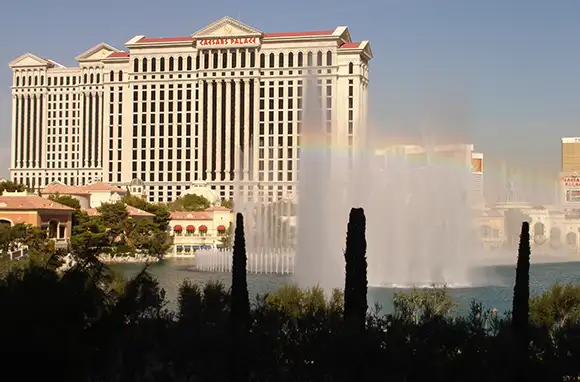
The Problem: Gresham's Law of Price Advertising
In price advertising, the bad drives out the good. Decades ago, when one big tour operator started cutting 13 percent off true prices and advertising tours at the phony cut prices "plus 15 percent tax and service," the honest operators had to do the same—even when they didn't like it. More recently, Caesars Palace hotels tried to hold out against widespread resort-fee scams in Vegas, but ultimately, the property had to give in to remain competitive.
That's why the spread of mandatory fees is so troublesome: It only takes one or two bad apples to force an entire market to adopt the scam. And, at least so far, the Federal Trade Commission (FTC) is acting with glacial speed to correct the problem before it spreads.

The Problem: Gresham's Law of Price Advertising
In price advertising, the bad drives out the good. Decades ago, when one big tour operator started cutting 13 percent off true prices and advertising tours at the phony cut prices "plus 15 percent tax and service," the honest operators had to do the same—even when they didn't like it. More recently, Caesars Palace hotels tried to hold out against widespread resort-fee scams in Vegas, but ultimately, the property had to give in to remain competitive.
That's why the spread of mandatory fees is so troublesome: It only takes one or two bad apples to force an entire market to adopt the scam. And, at least so far, the Federal Trade Commission (FTC) is acting with glacial speed to correct the problem before it spreads.

Car-Sharing Fees
Car-sharing company Uber has started adding a "Safe Rides Fee" of $1 per UberX trip in the U.S., supposedly to cover the costs of insuring drivers and their vehicles. Lyft has added a similar fee. This charge isn't onerous or widespread, but it's the newest example of consumer price gouging: It shows how the nefarious practice of mandatory fees happens in many different markets.
And it's a true hidden mandatory fee: The $1 doesn't go directly to any insurance company; it goes into the system operators' pockets to pay for the insurance, which may cost more or less than $1 but almost certainly not exactly $1.
Work-Around: There's really not much you can do about this if you want to use one of those peer-to-peer car systems.
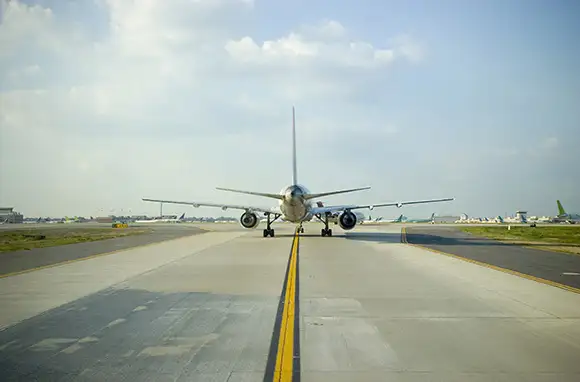
Airlines: Still at It
Yes, the U.S. Department of Transportation (DOT) and parallel authorities in Canada and Europe no longer allow airlines to carve "airline-imposed fees" or "fuel surcharges" (different names for the same things) out of true prices and display phony lowball airfare prices. Many foreign airlines, however, still construct fares that way in their internal accounting. For example, Lufthansa quotes an all-up fare of $1,339 for a San Francisco–Munich round-trip in mid-May. But when I look at the fine print, I see that Lufthansa claims the fare is a ridiculously low $670 plus $669 in fees and taxes, $515 of which is an "international/domestic surcharge." On the same flight, operating as a codeshare, United quotes an all-up fare of $1,469, of which only $153 amounts to the genuine government-imposed taxes and fees.
But airlines can still impose extra charges in other circumstances. Many foreign-based airlines tack fees onto supposedly "free" frequent-flyer award trips, as do U.S. airlines for award trips on some codeshare flights operated by foreign partner carriers. They may also add fees to supposedly "free" companion tickets. And, in some cases, airlines may not refund fees even when they refund base fares. All in all, the scam is still going on—just not as broadly or openly as before.
Work-Around: Airlines based in the U.S. and Canada are relatively free of this scam. Just make sure you aren't victimized on codeshare flights operated by foreign lines.

Hotels: The Current Hotbed
No question, the hidden-fee scam dominates large segments of the hotel business. What started in Las Vegas and Honolulu has spread like a cancer to other tourist areas of North America. The most common culprits are called "resort," "convenience," "concierge," or "housekeeping" fees, and they can easily reach levels of $50 per night. Although hotels are doing a bit better lately at disclosing these fees, they still don't include them in the base prices you see on websites or provide them to the metasearch engines or online travel agencies (OTAs).
Hotel apologists tend to cite the "services" these fees supposedly cover, whether or not guests actually use them; but that isn't the point. As noted, once a fee becomes mandatory, it becomes nothing more than part of the real price. Those lists of services are meant to mislead you, not inform you; they're "excuses" rather than true "reasons." The FTC has the authority to outlaw this scam, but so far it has done no more than urge more prominent disclosure. Feh!
Work-Around: A few years back, travel writers reported that you could sometimes talk your way out of a fee by claiming you never used the service it was supposed to cover. But that doesn't work much anymore. Now, your best bet is to use a search engine that can compare all-in prices, including taxes and fees, such as The Suitest.
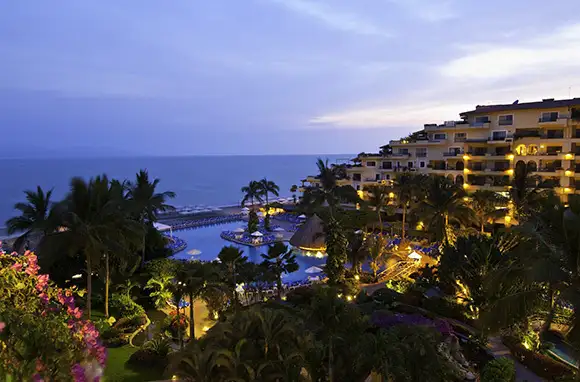
'All-Inclusive' Hotels? Not Really
"All-inclusive" should mean that the base rate covers all the necessities: room, standard food, standard recreation, and base entertainment. Right? You'd think so, but many all-inclusive hotels violate their implicit promise by adding "resort" and similar fees: charges that supposedly cover much of what "all-inclusive" should already entail.
Work-Around: As with hotels, generally, there is no work-around. You either submit to the scam or try to find an alternative facility that doesn't try it.
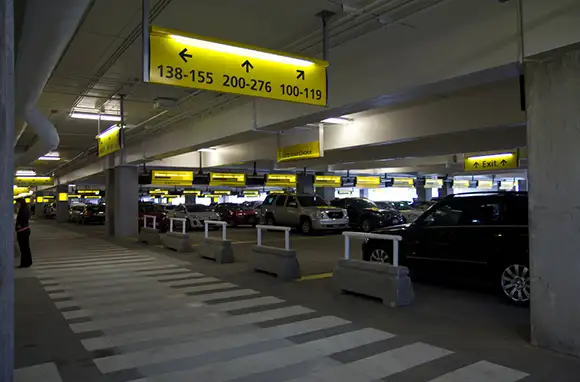
Rental Cars: Lots of Little Bites
Rental-car companies outdo other sectors of the travel industry in terms of sheer number of different mandatory fees. For a one-day intermediate rental at Boston's Logan Airport, for example, Hertz charges a base rate of $180.49 plus $50.17 in add-on charges:
- Airport concession fee, $21.40
- Customer facility charge, $6.00
- Convention-center surcharge and parking-fine recovery, $10.63
- Vehicle-licensing fee and excise tax, $10.65
- Energy surcharge, $1.49
Of these, only the convention-center charge goes to a local taxing agency. The others all go into the rental company's pocket. Yes, the company does have to pay for its airport property, its office, the licenses for its cars, and such, but those are all costs of doing business—not specific fees imposed by outside authorities—and so they should be included in base prices.
Work-Around: These days, the rental companies, OTAs, and metasearch engines all allow all-up price comparisons, including legitimate as well as phony fees. Further, you can sometimes avoid the real taxes and fees by renting from an off-airport location, but that adds additional complications when you arrive and leave by air.

Fees at Sea
Some cruise lines impose a "standard" tipping fee, but tipping has always been a not-really-optional "option" on cruises. If you don't agree with the cruise line's customary tipping system, you can opt out and tip however much you like on almost all cruise lines. Additionally, many cruise lines charge phony "port fees"; you'll see these appearing as line items when you go through the booking process.
Otherwise, the potential money traps on cruises, although alluring, are truly optional: specialty dining venues, extra-cost entrees, shore excursions, and such. Watch out for automatic gratuities on drinks, though, which many lines tack on at the bar.
Work-Around: When on board, stick with what's included in the base price and avoid all the restaurants and activities that cost extra.
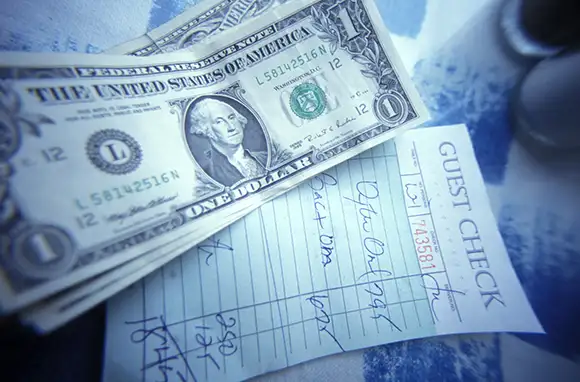
Restaurants
Fees to cover restaurant-employee health care are yet another recent development in the industry, and, in Jimmy Durante's classic catchphrase, it's a "revoltin' development" indeed. It seems to have started in San Francisco, pre-Affordable Care Act, when some upscale restaurants added up to 4 percent of the bill for "employee health care." Since the health-care rollout, select restaurants scattered around the country have started to add fees of 1 percent to 4 percent to cover health care, sometimes called an "Obamacare" fee.
Clearly, no matter what you might think of Obamacare, you have to recognize that the Affordable Care Act's mandates are a cost of doing business, along with food, rent, utilities, and such. Restaurants don't add a separate surcharge when other costs increase: Singling out heath care for extra treatment is a statement of political opposition rather than a financial necessity. And, as you might expect, the whole fee does not actually pay for employee health care: The San Francisco City Attorney found that more than 50 local restaurants were pocketing the fee and not using it to buy insurance.
Work-Around: Avoid restaurants that add this fee.

Booking Fees
These days, most big OTAs no longer add booking fees to their posted airfares and hotel rates. But in their opaque sales, Hotwire and Priceline still add their own fees, which they typically bundle in with taxes and increase the original price quote.
Some airlines add fees for online booking and/or payment by credit card. But DOT rules require that any fees specific to online booking be included in the online price display, and, at least so far, airlines that add surcharges for credit-card payments are very up-front about it; however, that honesty, enforced by the DOT, is under threat from the proposed Transparent Airfares Act that would allow airlines to omit taxes from posted fares and ultimately—if the airlines can keep conning Congress—to omit carrier-imposed fees as well.
Work-Around: None; you can't avoid the fees when you buy opaque.
More from SmarterTravel:
- 8 Things You Need to Know About Travel Insurance
- 9 New Airlines You Haven’t Heard of Yet
- Are These Time-Saving Innovations Sucking the Humanity Out of Travel?
We hand-pick everything we recommend and select items through testing and reviews. Some products are sent to us free of charge with no incentive to offer a favorable review. We offer our unbiased opinions and do not accept compensation to review products. All items are in stock and prices are accurate at the time of publication. If you buy something through our links, we may earn a commission.
Related
Top Fares From
Today's Top Travel Deals
Brought to you by ShermansTravel
Shop and Save with Country Inns...
Patricia Magaña
 Hotel & Lodging Deals
Hotel & Lodging Deals
$229 -- Chicago: Discounted Rates and...
Francesca Miele
 Hotel & Lodging Deals
$229+
Hotel & Lodging Deals
$229+
$188 -- Honolulu: Save on Oceanview...
Abigail Lamay
 Hotel & Lodging Deals
$188+
Hotel & Lodging Deals
$188+




